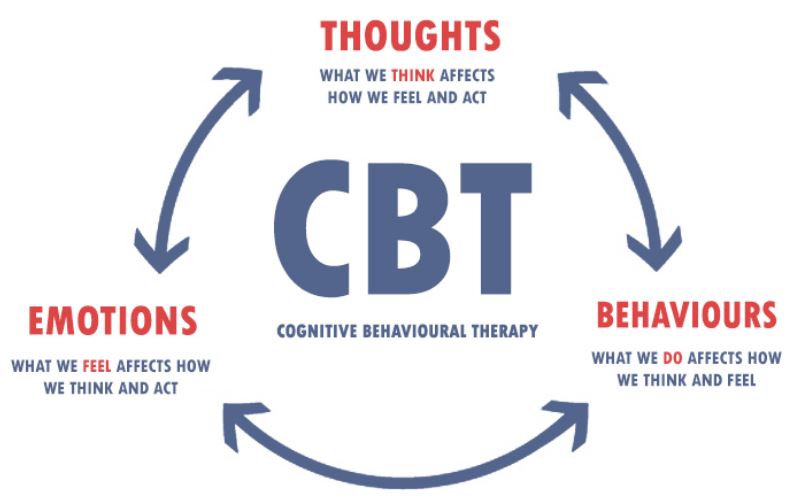A Critical Evaluation of the Effectiveness of Cognitive Behaviour Therapies for Children and Adolescents with Anxiety Disorders – A Literature Based Study (2017)
Cognitive Behaviour Therapies Dissertation – Research into the effectiveness of cognitive behavioural therapy for anxiety disorders has previously mainly focused on adults. However, there has been an increase of research into the effectiveness of cognitive behaviour therapy for children and adolescents, albeit studies remain scarce. This dissertation aims to examine the effectiveness of cognitive behavioural therapies available to children and adolescents with anxiety disorders.
This critical literature review analyses the available literature, offering a critical evaluation of the most used forms of cognitive behaviour therapy: group and family cognitive behavioural therapy, individual cognitive behavioural therapy and computerised cognitive behavioural therapy. Furthermore, this research outlines a range of key findings, identifying numerous difficulties found in treating children and adolescents with anxiety disorders as well as considering what is needed for cognitive behaviour therapy to be effective.
Some of the issues found to affect the overall effectiveness of cognitive behaviour therapy include non-compliance, parental involvement, drop-out and the strength of the therapeutic relationship. The main conclusions propose that cognitive behavioural therapies for children and adolescents with anxiety disorders are effective from the outset, but upon further analysis, may not be as effective as many professionals suggest.
The aim of this dissertation is to examine the effectiveness of cognitive behavioural therapy (CBT) in children and adolescents with anxiety disorders. Through carrying out an extensive literature review using secondary data, this piece of research will gather and critically analyse evidence for and against the effectiveness of cognitive behaviour therapy for children and young people with anxiety disorders.
More specifically, this dissertation will critically analyse the effectiveness of the most widely used forms of CBT: family and group based cognitive behaviour therapy, individual cognitive behaviour therapy and computerised cognitive behaviour therapy. A comparison between approaches will be made in the discussion whereby suggestions will be made upon which form of CBT is the most effective for children and adolescents with anxiety disorders.
- 10,000 words – 32 pages in length
- Excellent use of literature
- Good analysis of subject area
- Well written throughout
- Ideal for health studies students
1 – Introduction
Research Aims
2 – Methodology
Ethical Issues
Methodological Issues
Secondary Data Sources
Conclusions
3 – History and Development of Cognitive Behavioural Therapy
Children and Young People with Anxiety
4 – Family and Group Cognitive Behavioural Therapy
Group Cognitive Behaviour Therapy
Cognitive Behavioural Therapy in Schools
Family Cognitive Behavioural Therapy
Conclusions
5 – Individual Cognitive Behavioural Therapy
Cognitive Techniques
Behavioural Techniques
Therapeutic Relationship
Drop-out Rates and Homework Compliance
Conclusions
6 – Computerised Cognitive Behavioural Therapy
BRAVE Online and Camp Cope-A-Lot
Compliance with Programs
Therapist Involvement
Conclusions
7 – A Comparison between Cognitive Behavioural Therapy Approaches
Similarities Between Approaches
Differences Between Approaches
8 – Conclusions and Future Recommendations
Bibliography
Appendix

